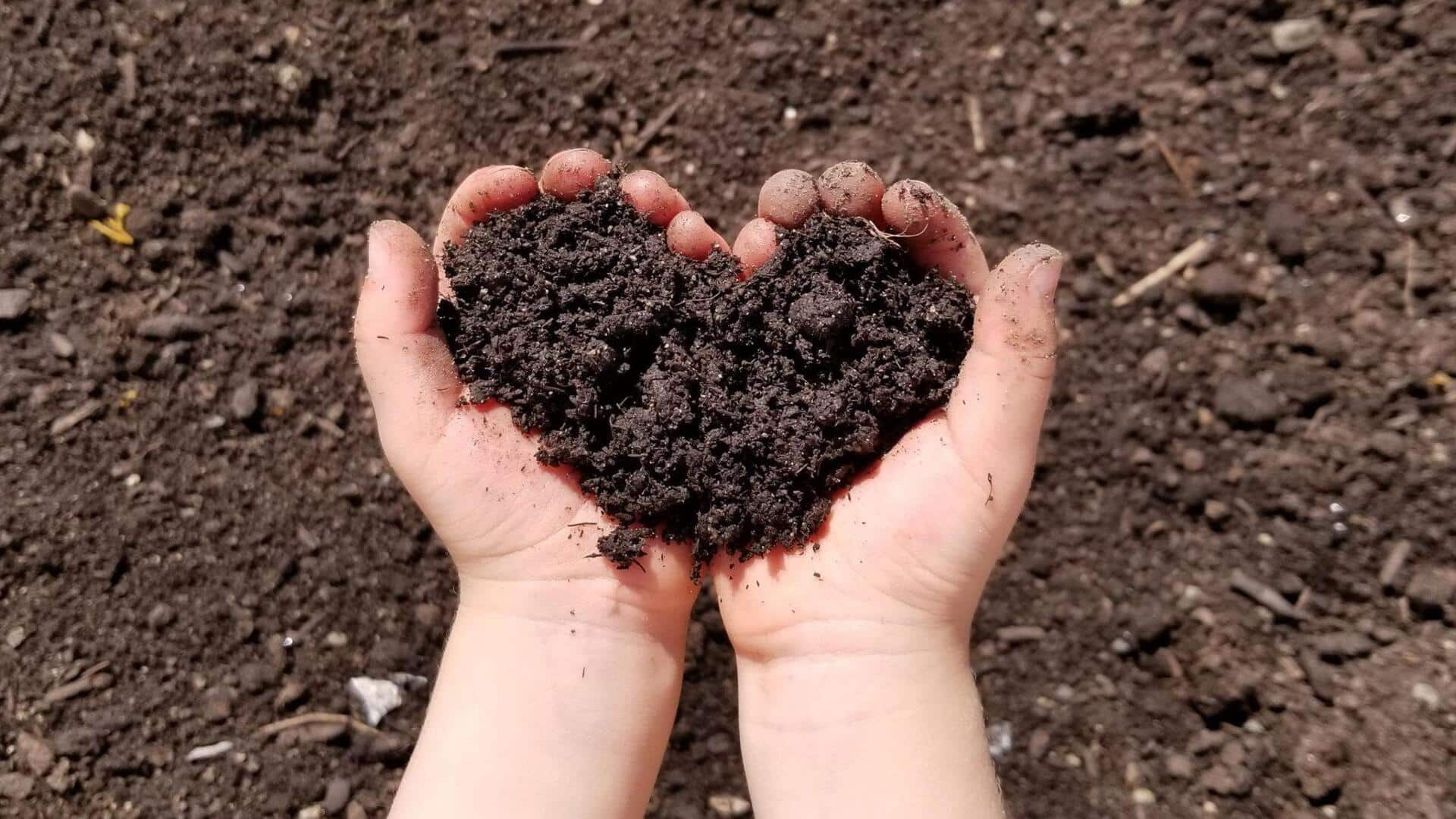
Go green with homemade compost projects, inspire kids
What's the story
Educating children about sustainability can be fun and engaging with hands-on activities like creating your own compost at home.
Such projects teach kids the importance of recycling organic waste and foster a sense of responsibility toward the environment.
By transforming kitchen scraps into fertile soil, children can observe the cycle of life firsthand and learn practical lessons in ecology and resource conservation.
Basics
Starting small with kitchen scraps
Begin by collecting kitchen scraps such as fruit peels, vegetable trimmings, and coffee grounds.
Steer clear of meat, dairy, or oily foods to avoid unpleasant smells and critters.
Educate kids that instead of throwing these scraps away to produce harmful methane emissions in landfills, they can be used to enrich the soil.
This hands-on experience highlights the tangible benefits of recycling, making the concept more accessible and meaningful for children.
Construction
Building a compost bin together
Building a compost bin is a great DIY project to get kids involved.
Use recycled materials like old wooden pallets or even a plastic bin with holes drilled for aeration.
This not only teaches kids about reusing materials but also engages them in the building process, fostering problem-solving skills.
Teach them the art of layering green (nitrogen-rich) materials with brown (carbon-rich) materials for faster decomposition.
Observation
Observing the decomposition process
Encourage them to check on the compost bin regularly and make observations.
They can keep a journal and note down things like how warm it gets, when they start to see worms, and how the scraps slowly turn into compost.
It's a great way to teach patience and the importance of paying attention to details.
Plus, it's biology and chemistry in action without the confines of a traditional classroom!
Application
Using compost in gardening projects
Once the compost is ready, engage kids in fun gardening projects like planting flowers or vegetables.
They'll see firsthand how their compost boosts plant growth compared to untreated soil.
This hands-on experience reinforces the value of their contribution and demonstrates sustainable practices in everyday life.
It cultivates an early love for environmental stewardship through interactive learning.